
Who Reads Ebooks?
Any aspiring author today would most likely begin writing for ebook readers. This is because ebooks are the cheapest and most convenient form of stories to publish. All you need is a computer with an internet connection and you’re ready to produce ebooks.
Ebooks are also becoming more popular despite printed books still controlling a large segment of the book market. Despite their slow rise to prominence, ebooks continue to become popular to the new generations of readers.
It may take time, but eventually ebooks will rival the popularity of printed books. Already, printed books sales are continuing to decline while ebooks and especially audiobooks are fast garnering marketshare.
A Disappointing Google Result
I did a goole search using the search keywords: ”who reads ebooks” and I was a bit disappointed. The top search article is quite old. It was written last January, 2013. And apparently, this article has been copied by other websites trying to answer the same question.
Most of the websites that copied the article even copied the same infographics from the original article. The article is from Penguin Random House. It was written by Mina Park, Senior Analyst for Consumer Insights at the company. Here is the link to the article:
Who Reads eBooks? [Infographic]
A Summary Of The 2013 Article
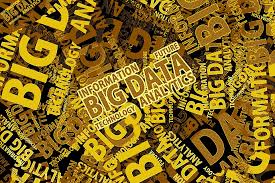 Over a fifth of American adults have read an eBook. Most eBook consumers are women, they are younger than 45 years old, are college educated or have some college education and earn good money.
Over a fifth of American adults have read an eBook. Most eBook consumers are women, they are younger than 45 years old, are college educated or have some college education and earn good money.
People who read ebooks are over 20 percent more likely to have household incomes over $100,000 per year as against non-eBook readers. Their preferred genres include mystery/suspense/detective fiction, general fiction, and romance.
They are also more easily accessible through online contact and are more inclined to believe word of mouth recommendations. This statistics is compared to all Americans ages 16 and up.
They tend to believe online bookstore and website recommendations. It is said that 56 percent of ebook readers do this as against 34 percent of the general reading population.
When compared to all Americans ages sixteen and up, they tend to rely more heavily on word-of-mouth (81 percent of them do), and bookstore staff (31 percent of them do) for book recommendations.
Here is the summary of the demographic of the infographics from the article:
63% are women readers
60% of readers are under 45
66% have degrees
40% earn more than 75K
Most Popular Genres:
Mystery, Suspense detective fiction= 44%
General fiction= 40%
Romance= 24%
Humor= 23%
History= 20%
Spent less than $5 dollars on their last ebook= 38%
Attitudes of ebook readers:
Reading is an important part of my life= 73%
I like to discuss books with my friends and family= 51%
I stay informed about new books as they come out= 34%
A Summary Of A 2017 Article From The National Endowment for the Arts
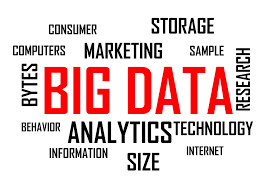 The National Endowment for the Arts studied American reading habits in 2017. They studied 10 ebook readers for every 4 print only readers. According to them, slowly but surely, ebooks are eating away at print book sales.
The National Endowment for the Arts studied American reading habits in 2017. They studied 10 ebook readers for every 4 print only readers. According to them, slowly but surely, ebooks are eating away at print book sales.
According to their survey, 44.5% of adults said they read or listened to books in digital formats as compared to just 25.1% of adults stating that they read print books alone. So this is definitely good news for ebook authors.
When it comes to people who read ebooks or printed books or listen to audiobooks, 50.6% said they read only ebooks, while 35.6% said they read ebooks and audiobooks, and 13.8% stated that they just like audiobooks.
The report cautioned readers though of the timeliness of the survey. The report was a byproduct of a survey done in the year 2017 from a survey group of 1,500 people. They have said that since this survey, audiobook sales have soared.
A Pew Research Center study found that the number of adults who used audiobooks in the past year climbed 6% from the 2018 period. So this report though much recent is also dated and is need of an update.
A 2020 Report From eBooks.com
According to the website eBooks, their ebook readership is inversely proportional to the age of their readers. To be more clear, the younger a reader is, the more they are inclined to read ebooks.
In fact, 62% of ebook purchases are made by people aged between 18 and 45. According to the writers of the report, it is clear that ebooks have a bright future. This just means a bright future as well to ebook authors.
Ebooks As Marketing Media
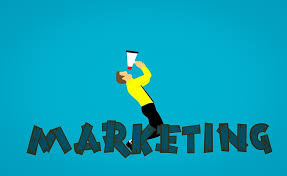 The 2020 State of B2B Content Consumption and Demand Report for marketers reveals that ebooks are the number one content type by request. Ebook is almost the required marketing format as against all kinds of paper media, webinars and so on.
The 2020 State of B2B Content Consumption and Demand Report for marketers reveals that ebooks are the number one content type by request. Ebook is almost the required marketing format as against all kinds of paper media, webinars and so on.
This means the if you ever get a job working for marketing companies, there is a big opportunity for you to expand your writing business writing marketing materials for both companies and consumers.
From A July 2018 Booknet Canada Article
This is from Booknet Canada’s survey using 500 respondents over the age of 18. Based on their survey results, the average Canadian ebook reader is a female and is under the age of 45 years old.
She is unmarried and childless. She has a degree and makes more than $50K per year. On average, digital readers tend to be younger than print readers. Meanwhile, audiobook listeners are even younger still.
Acquisition:
53% of digital readers said that they acquire ebooks through Amazon's various Kindle services. Google came in second at 33%, however it's possible that some respondents were conflating Google Play with Google's search engine, so this number should be taken with a grain of salt.
Behind Google is Kobo at 30%, the library at 25%, and Apple at 20%. Trailing closely behind Apple and ahead of Scribd, Project Gutenburg, and Barnes & Noble are torrent sites with 14% of digital readers using them to download ebooks.
When looking just at the respondents who read at least 60% of content digitally, the order stays very much the same with Kobo jumping slightly ahead of Google.
Formats:
 Of all books read last year by digital readers, 45% were ebooks, 43% were print, and 12% were audiobooks.
Of all books read last year by digital readers, 45% were ebooks, 43% were print, and 12% were audiobooks.
When it comes to sales of ebooks; Fiction, Romance, Historical Fiction, and Mystery & Detective titles are popular in ebook format, but Graphic Novels & Comics and general Fiction sell better in print.
Non-Fiction sells largely in print (though Business is the most popular genre in the digital format), as many of these books are given as gifts. Even when you eliminate the Christmas quarter from the data, print sales still dominate.
Pricing:
Price is the most important factor for digital readers when deciding to buy a book (in either format). On average, digital readers think ebooks should cost $9.18 and print books should cost slightly more at $11.68.
There is also a solid chunk who think that they shouldn't have to pay for content at all: 18% of digital readers think ebooks should be free and 15% think print books should be free.
That said, these figures are quite close to the number of digital readers who choose to torrent their ebooks (14%). This is sad news for authors who work hard creating ebooks.
This is the Infographic Summary from the Booknet Canada Report:
In 2019, the average digital reader read 45% digitally, 43% in print, and 12% in audio.
Where do they acquire their ebooks?
Amazon – 53%
Google – 33%
Kobo – 30%
Library – 25%
Apple – 20%
Torrent Sites – 14%
$9.18 is the average price digital readers are willing to pay for an ebook.
43% of digital readers do not use e-readers.
Price is the most important factor in their decision to buy.
Short Stories Sell Well On Ebooks
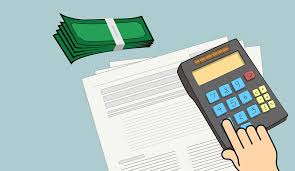 Another good thing for ebook authors is that shorter stories sell better on ebooks. There are in fact many authors who do not write books with a lot of word count and instead write books in shorter form live novella and novelettes.
Another good thing for ebook authors is that shorter stories sell better on ebooks. There are in fact many authors who do not write books with a lot of word count and instead write books in shorter form live novella and novelettes.
This may be important. Amazon actually has a limit of selling 2,500 word counts for ebooks.
You can try to publish fiction or nonfiction on Kindle that's less than 2,500 words, but it's entirely possible your book may not be accepted.
It is recommend that you have at least 10,000 words for nonfiction, For fiction, It is recommended that one should have at least 5,000 words or more for short stories. This guide is from TCK Publishing.
Conclusion
 In essence, what these different online articles have in common is that most of them inform us that the readers of ebooks are mostly women, well educated and are earning good income. Despite this, they don’t pay a lot of money for the ebooks they purchase.
In essence, what these different online articles have in common is that most of them inform us that the readers of ebooks are mostly women, well educated and are earning good income. Despite this, they don’t pay a lot of money for the ebooks they purchase.
Another good thing about these articles is that they point out that ebooks are getting more popular with younger and younger readers which means that ebooks have a great future. This means there is a great future too for ebook authors if you don’t mind the piracy issue.
You might also like to read the article:
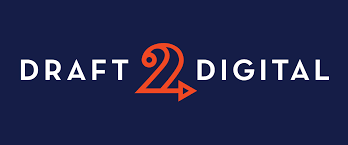
Ebook Aggregators and Uploading To Draft2Digital.